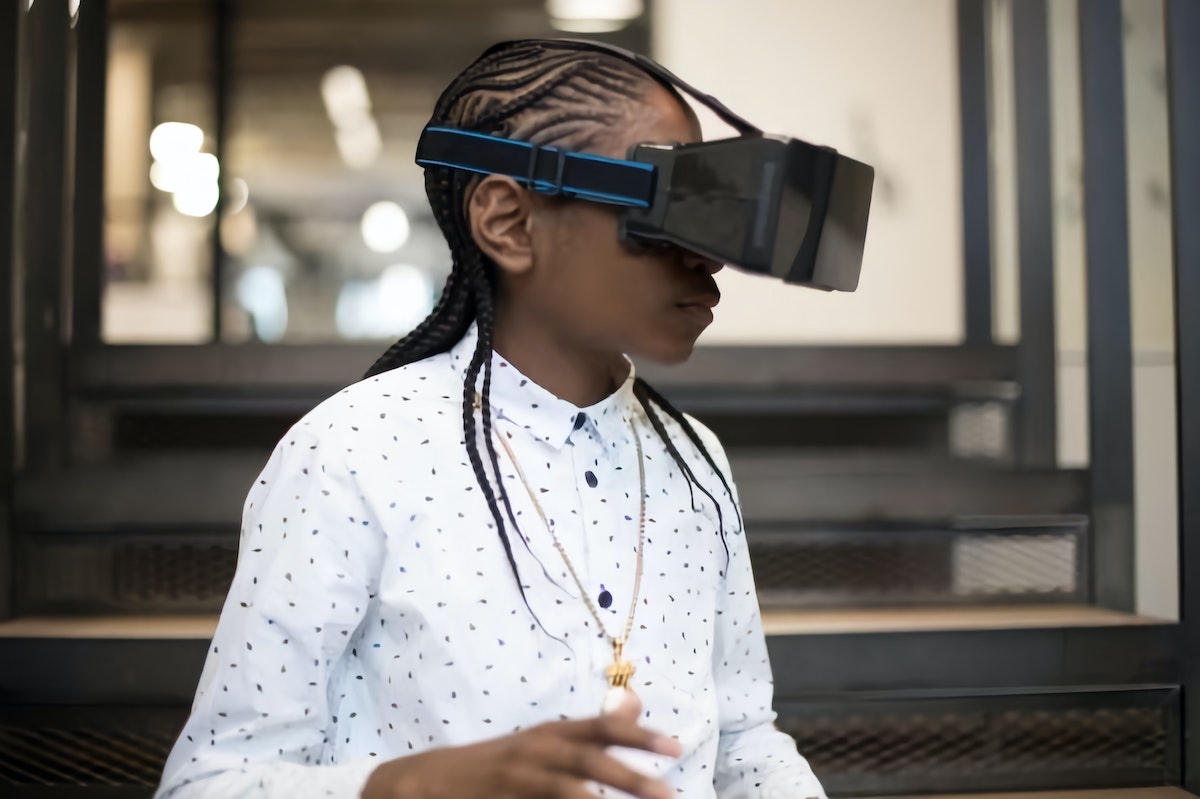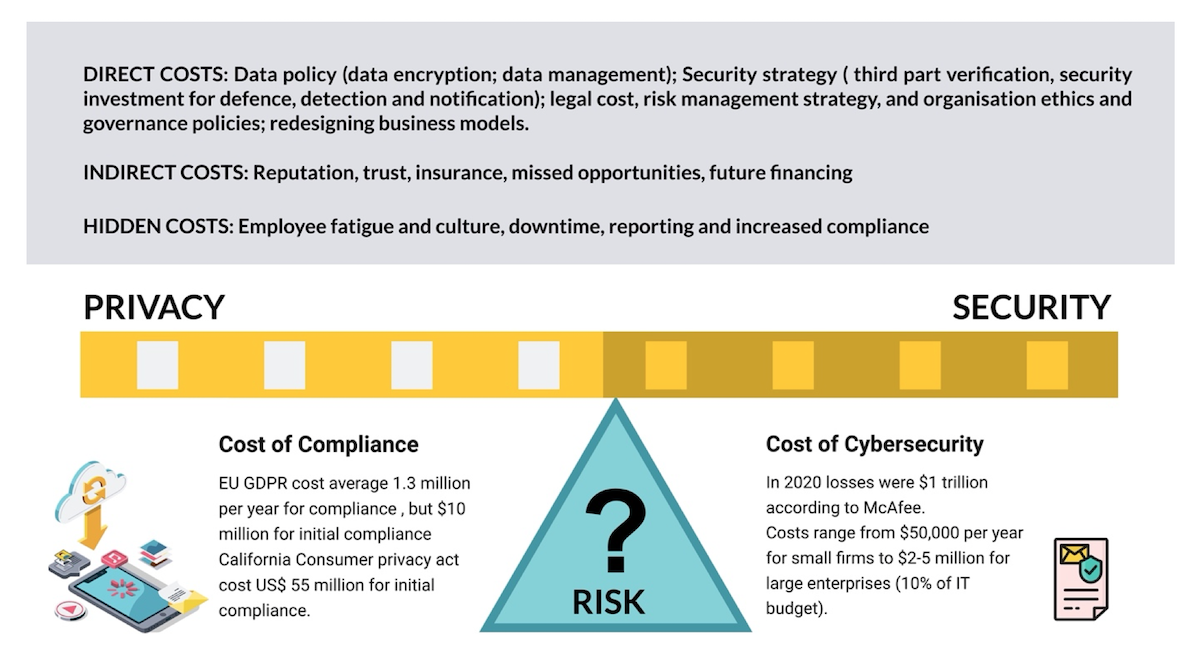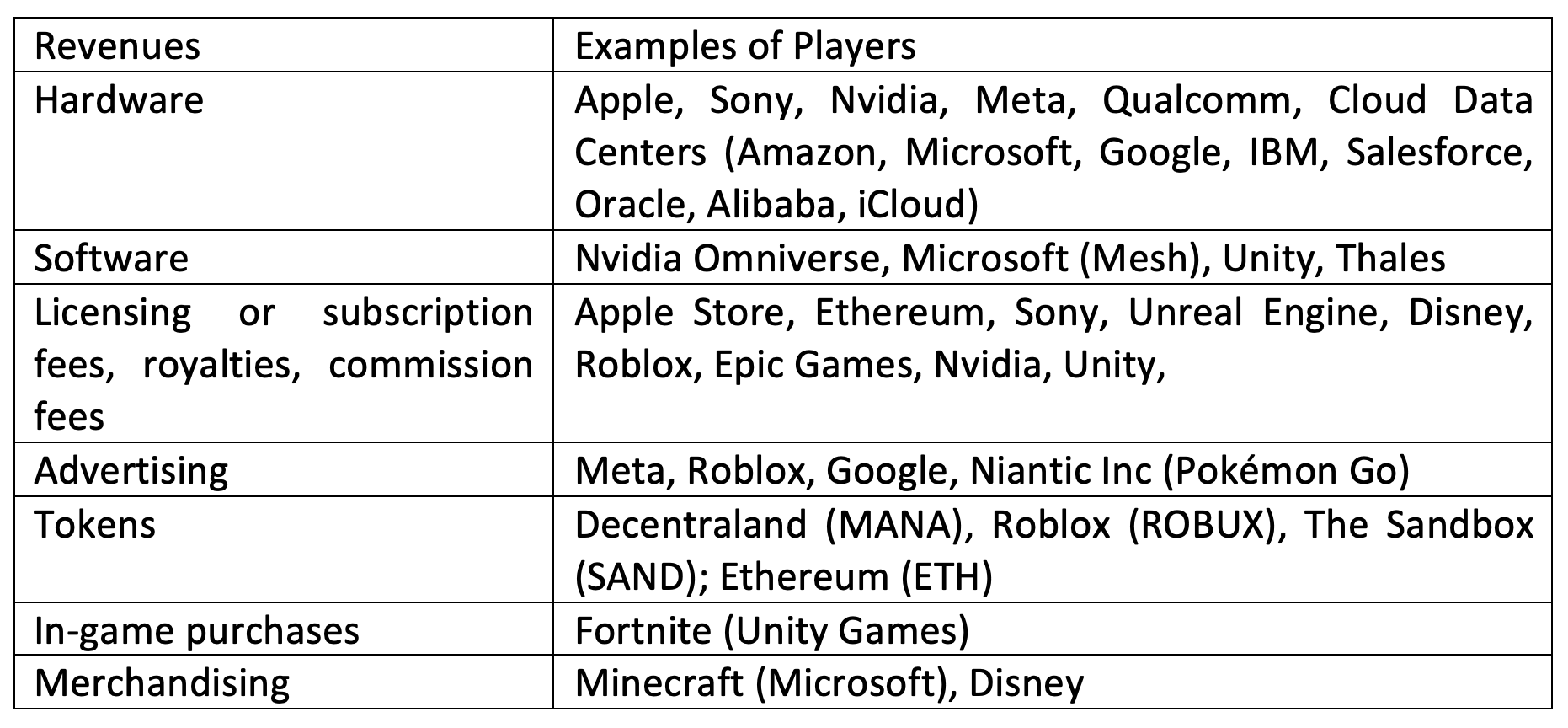California Management Review
California Management Review is a premier professional management journal for practitioners published at UC Berkeley Haas School of Business.

Image Credit | UK Black Tech
Gartner (2022) defines the metaverse as a collective virtual shared space created by the convergence of virtually enhanced physical and digital reality. The nascent metaverse (Ball, 2022; Stephens et al., 2022) should be able to create a economy estimated to grow to US $8 to 13 trillion by 2030 (Citi, 2022). However, before entering the metaverse, a manager must assess the trade-offs in this new opportunity, as indicated below.
“Social Media: A Tool for Open Innovation” by Matthew Mount & Marian Garcia Martinez. (Vol. 56/4) 2014.
“A Brief History of Artificial Intelligence: On the Past, Present, and Future of Artificial Intelligence” by Michael Haenlein & Andreas Kaplan. (Vol. 61/4) 2019.
The metaverse will generate massive amounts of data. Data privacy needs to be balanced with security concerns. There is a lack of knowledge, use of open-sourced code or layers of code connected by APIs (the ownership is not clear), and data collected without transparency on consent and permissions. Many combinations of data privacy exist. Data may be stored as is or encrypted in the hardware of the device (mobile, laptops), the cloud, or another server. In most cases, it is constantly being used to improve the experience. Most B2B or B2G providers leave it to their clients to determine best practices (which differ across legal jurisdictions). The challenge is that data management policies are difficult to create, adopt and legally enforce in the global context adding to the high costs of maintaining the security and privacy of data and systems (see Figure 1).
Figure 1: The Privacy-Security Trade-off

The illusion of sustainability with carbon disclosures and ESG reports needs to be broken. The metaverse is dependent on hardware that consume resources from extractive industries, responsible for 50% of the carbon footprint and 90% of the loss of biodiversity and water (UN, nd). For example, 60% of the worlds cobalt (used in silicon chip manufacturing) comes from Democratic Republic of Congo. The process of mining, smelting (which consumes electricity) and its disposal is toxic to the environment and people (Farjana, Huda, and Mahmud, 2019). A semiconductor chip may travel 25,000 miles before being embedded in an appliance (Accenture, 2020)! The metaverse will exponentially consume more data requiring more hardware. Software or data are rarely stored in local proximity but across borders, creating an environmental footprint that is often hidden and difficult to measure. Services and data utilization are increasingly contributing to the world GDP. Over 99% of data travels through physical cables that are 1.2 million kilometers (Prime Engineering, 2019), of which 60+% is video streaming (Evangelidis & Davies, 2021) and this still needs to be streamed via WIFI in many cases. While there are improvements in technology, we need to keep in mind about 37% of the world’s population is still not active on the internet. The metaverse will need a circular economy to be sustainable.
History in early gaming and online communities shows that community norms are difficult to achieve (Stephens et al., 2022). There is an assumption that communities will be better governed in the metaverse as they will come together with common interests, like the formation of a Decentralized Autonomous Organization (DAO). In 2016, the DAO, built on the Ethereum (ETH) blockchain, which raised US$150 million from 11,000 investors and controlled 14% of ETH being circulated, was hacked three months later (Cryptopedia, 2022). The vulnerabilities came from the architecture design. The founder of Ethereum suggested a fork in the code to recover the funds, but the alleged hacker posted a letter saying that they legitimately obtained the funds based on the rules (Guest, 2016). Another post surfaced where Ethereum miners would be bribed not to comply (Cryptopedia, 2022) – bribery is a problem in blockchain (Sun, 2022). Eventually, due to a vulnerability identified in Ethereum as an update, a hard fork was executed where the DAO’s ether was reallocated to a different smart contract (which was against the logic of a smart contract that is supposed to be immutable). This example shows that TOR, or even smart contracts, may be insufficient if we do not have common global norms on ethics and culture.
The metaverse will have various funding models (see Table 1). Many platform companies (Ethereum, Decentraland, Sandbox, Microsoft Mesh) are unlikely to make profits in the immediate future. Still, they are betting that their business model may become the market standard. It is estimated that 85% of virtual world business models are based on micro-transactions (Atelier, 2021). For example, Roblox developers must earn at least 50,000 Robux to exchange into real currency with an exchange rate of USD 0.0035 per Robux (Roblox, 2022). Of the 1.7 million developers, only 7000 qualified for the Developer Exchange Program, and only 5500 exchanged their Robux for real currency (Roblox Annual Report, 2021). Unfortunately, the gap between large and small companies is growing (Govindarajan, Lev, Srivastava & Enache, 2019, and will continue in the metaverse. The metaverse growth is fueled by M&A acquisitions (GlobalData, 2022). Healthy competition is needed for markets to grow and evolve and to prevent a concentration of power in the hands of a few.
Table 1: Income Sources for Metaverse Players

New entrants in this space need to understand the technology, the market mood, and pressures and balance this with ethical and sustainable decisions for the global community (the metaverse cannot be constrained). Outsourcing poses huge dangers where security and governance challenges remain hidden until too late. Unfortunately, there are no shortcuts to due diligence and gaining knowledge about AI and metaverse ethics. For managers and policy makers, the metaverse is about short-term returns versus long-term shifts in the fabric of humanity and the planet.
Accenture (2020). Globality And Complexity of the Semiconductor Ecosystem. https://www.accenture.com/_acnmedia/PDF-119/Accenture-Globality-Semiconductor-Industry.pdf
Atelier (2021). The Virtual Economy. Available: https://atelier.net/virtual-economy/
Ball, M. (2022). The Metaverse: And How it Will Revolutionize Everything.
Citi (2022). Metaverse and Money: Decrypting the Future. https://shorturl.at/hil78
Cryptopedia (2022). What Was The DAO? https://www.gemini.com/cryptopedia/the-dao-hack-makerdao
Evangelidis, H. & Davies, R. (2021). Are You Aware Of Your Digital Carbon Footprint? Capgemini. https://www.capgemini.com/gb-en/insights/expert-perspectives/are-you-aware-of-your-digital-carbon-footprint/
Farjana, S. H., Huda, N., & Mahmud, M. A. P. (2019). Life cycle assessment of cobalt extraction process, Journal of Sustainable Mining, 18 (3): 150-161.
Gartner (2022). What Is a Metaverse? And Should You Be Buying In? https://www.gartner.com/en/articles/what-is-a-metaverse
GlobalData (2022). Rapidly growing M&A activity will propel metaverse market to record CAGR of 39.8% during 2022 to 2030, says GlobalData. https://www.globaldata.com/media/technology/rapidly-growing-ma-activity-will-propel-metaverse-market-record-cagr-39-8-2022-2030-says-globaldata/
Govindarajan, V., Lev, B., Srivastava, A. & Enache, L. 2019. The Gap Between Large and Small Companies Is Growing. Why? Harvard Business Review, https://hbr.org/2019/08/the-gap-between-large-and-small-companies-is-growing-why
Guest (2016). An Open letter, dated June 16. Pastebin. https://pastebin.com/CcGUBgDG
Prime Engineering (2019). “The Physical Internet” - How Data Physically Travels Around The World. https://www.primeengineering.com.au/the-physical-internet-how-data-physically-travels-around-the-world/
Roblox. (2022). Developer Economics. https://create.roblox.com/docs/production/monetization/economics
Roblox Annual Report (2021). https://s27.q4cdn.com/984876518/files/doc_financials/2021/ar/Roblox_Proxy-and-Annual-Report_Web-Ready_Bookmarked-(1).pdf SEC p. 10.
Stephens, M., et al. (2022). Metaverse and its Governance. IEEE SA. https://standards.ieee.org/wp-content/uploads/2022/06/XR_Metaverse_Governance.pdf
Sun, X. (2022). Bribes to Miners: Evidence from Ethereum. https://ui.adsabs.harvard.edu/abs/2022arXiv220314601S/abstract
UN (nd). Act Now: Facts and Figures. https://www.un.org/en/actnow/facts-and-figures
 Insight
Rajeshwari Krishnamurthy et al.
Insight
Rajeshwari Krishnamurthy et al.
 Insight
Fariba Latifi
Insight
Fariba Latifi